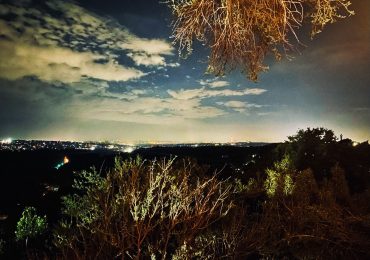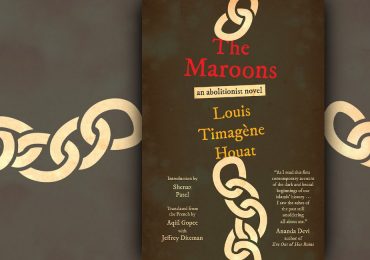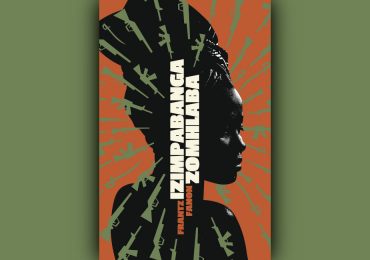The longlisted books for the 2020 International Booker Prize have been revealed, featuring translations from eight languages, originating in Europe, South America, Africa, the Middle East and South-East Asia.
Author Willem Anker and translator Michiel Heyns become the first South Africans to be nominated for the prize in its present format (scroll down for more).
Thirteen books have been longlisted for the prestigious award this year, which celebrates ‘the finest translated fiction from around the world’. Previous winners of the prize include Korean bestseller Han Kang and Polish Nobel laureate Olga Tokarczuk.
There is one African entry on the longlist this year: Red Dog, Michiel Heyns’s translation of Willem Anker’s novel Buys, which was first published in Afrikaans by Kwela in 2014.
Buys won a number of major Afrikaans literary prizes, including the University of Johannesburg Prize, the WA Hofmeyr Prize, the kykNET-Rapport Prize, the SALA K Sello Duiker Memorial Literary Award, the Helgaard Steyn Prize and the Hertzog Prize. The English translation won the 2019 SALA Literary Translator’s Award. The UK edition of the translation was published by Pushkin Press.
The International Booker Prize Judges called Red Dog:
‘A work that reminds us how translation is a creative force that destabilises linguistic conventions. A novel of serpentine, swashbuckling sentences that capture the mounting cruelty of the colonial project in South Africa.’
The International Booker is awarded every year for a single book translated into English and published in the UK or Ireland. Both novels and short story collections are eligible. The contributions of both the author and translator are given equal recognition, with the two sharing the £50,000 (about R990,000) prize money. Each shortlisted author and translator will receive £1,000.
The prize shortlist will be announced on Thursday, 2 April, at an event at Ennismore Sessions House in London, UK.
2020 International Booker prize longlist
- Red Dog by Willem Anker, translated by Michiel Heyns from Afrikaans (Pushkin Press)
- The Enlightenment of the Greengage Tree by Shokoofeh Azar, translated by Anonymous from Farsi (Europa Editions)
- The Adventures of China Iron by Gabriela Cabezón Cámara, translated by Iona Macintyre and Fiona Mackintosh from Spanish (Charco Press)
- The Other Name: Septology I-II by Jon Fosse, translated by Damion Searls from Norwegian (Fitzcarraldo Editions)
- The Eighth Life by Nino Haratischvili, translated by Charlotte Collins and Ruth Martin from German (Scribe UK)
- Serotonin by Michel Houellebecq, translated by Shaun Whiteside from French (William Heinemann)
- Tyll by Daniel Kehlmann, translated by Ross Benjamin from German (Quercus)
- Hurricane Season by Fernanda Melchor, translated by Sophie Hughes from Spanish (Fitzcarraldo Editions)
- The Memory Police by Yōko Ogawa, translated by Stephen Snyder from Japanese (Harvill Secker)
- Faces on the Tip of My Tongue by Emmanuelle Pagano, translated by Sophie Lewis and Jennifer Higgins from French (Peirene Press)
- Little Eyes by Samanta Schweblin, translated by Megan McDowell from Spanish (Oneworld)
- The Discomfort of Evening by Marieke Lucas Rijneveld, translated by Michele Hutchison from Dutch (Faber & Faber)
- Mac and His Problem by Enrique Vila-Matas, translated by Margaret Jull Costa and Sophie Hughes from Spanish (Harvill Secker)
African authors and the International Booker Prize
From 2005 until 2015 the International Booker Prize was awarded every two years to ‘a living author of any nationality for a body of work published in English or generally available in English translation’. Nigerian author Chinua Achebe won this version of the award in 2007, while other African writers were occasionally nominated: Egyptian author Naguib Mahfouz in 2005; Kenyan author Ngũgĩ wa Thiong’o in 2009, and in 2015 the trio of Libyan author Ibrahim al-Koni, South African author Marlene van Niekerk and Congolese author Alain Mabanckou. Achebe, however, remained the only winner.
No African author has won the award in its current format, and until now just three have been nominated. In this prize’s first year, 2016, Angolan author José Eduardo Agualusa was shortlisted (along with British translator Daniel Hahn), and Congolese author Fiston Mwanza Mujila longlisted (along with British translator Roland Glasser), while in 2017 Alain Mabanckou was longlisted (along with British translator Helen Stevenson), for Black MosesWillem Anker is the first South African author to be nominated for the prize in its present guise, and Michiel Heyns the first South African (and, it seems, the first African) translator.
Familiar faces
For a couple of names this is not the first Booker rodeo. Samanta Schweblin, author of Little Eyes, was previously longlisted for Mouthful of Birds and shortlisted for Fever Dream, while translator Sophie Hughes, who was shortlisted in 2019 for her work on Alia Trabucco Zerán’s The Remainder, features on the list twice this year as the translator of Hurricane Season and co-translator of Mac and His Problems.
The Booker Prize organisers say of this year’s longlist:
If there was a theme discernible in last year’s longlist it was explorations of dystopia. This year’s novels are tricky to pin down, there’s a healthy handful of historical fiction but also a cluster of books that deal with the sense that something is not quite right in their characters’ worlds. In Hurricane Season by Fernanda Melchor it is the discovery of the body of a Mexican witch, in The Memory Police by Yoko Ogowa it is the insubstantial and fragile nature of remembrance, in Faces on the Tip of My Tongue by Emmanuelle Pagano it is the intrusion of unexpected events in rural France, while in Little Eyes by Samanta Schweblin it is the sudden emergence of strangers into lives on the other side of the world.
The longlist will, of course, be examined to see what international fiction has to say about the state of our linked modern world but consensus is hard to find. If there is one thing that doesn’t change, even as the world does, it is the writers’ imagination and the ability to conjure up the unimagined and make it real. This perhaps is what links the 13 longlisted writers, just as the link between the translators is the ability to find the words that allows the stories to live to the fullest.
Impact of the award
Last year’s Booker International was Celestial Bodies by Omani novelist Jokha Alharthi, translated by Marilyn Booth, from an all-female shortlist of translators, alongside five female authors. Alharthi was the first female Omani novelist to be translated into English, and became the first author from the Arabian Peninsula to win the Man Booker International.
The Booker prizes—the International Booker and the Booker Prize—are known for precipitating a boost in sales, and according to the Booker foundation Celestial Bodies experienced a thirty-fold increase in sales in the week following last year’s prize announcement, shooting to the top of the Amazon Contemporary Fiction bestsellers.
Nine of the books on this year’s longlist are published by independent presses, including Red Dog and The Enlightenment of the Greengage Tree by Shokoofeh Azar, whose translator from Farsi has chosen to remain anonymous for security reasons.
This year’s judges and chair’s comments
This year the judges considered 124 books for the longlist. The panel of five judges is chaired by Ted Hodgkinson, Head of Literature and Spoken Word at Southbank Centre, and includes Lucie Campos, director of the Villa Gillet, France’s centre for international writing; Man Booker International Prize-winning translator and writer Jennifer Croft; LA Times Book Prize for Fiction-winning author Valeria Luiselli and writer, poet and musician Jeet Thayil, whose novel Narcopolis was shortlisted for the Booker Prize in 2012.
Ted Hodgkinson says:
‘What a thrill to share a longlist of such breadth and brilliance, reflecting a cumulative artistry rooted in dialogue between authors and translators, and possessing a power to enlarge the scope of lives encountered on the page, from the epic to the everyday. Whether reimagining foundational myths, envisioning dystopias of disquieting potency, or simply setting the world ablaze with the precision of their perceptions, these are books that left indelible impressions on us as judges. In times that increasingly ask us to take sides, these works of art transcend moral certainties and narrowing identities, restoring a sense of the wonderment at the expansive and ambiguous lot of humanity.’





